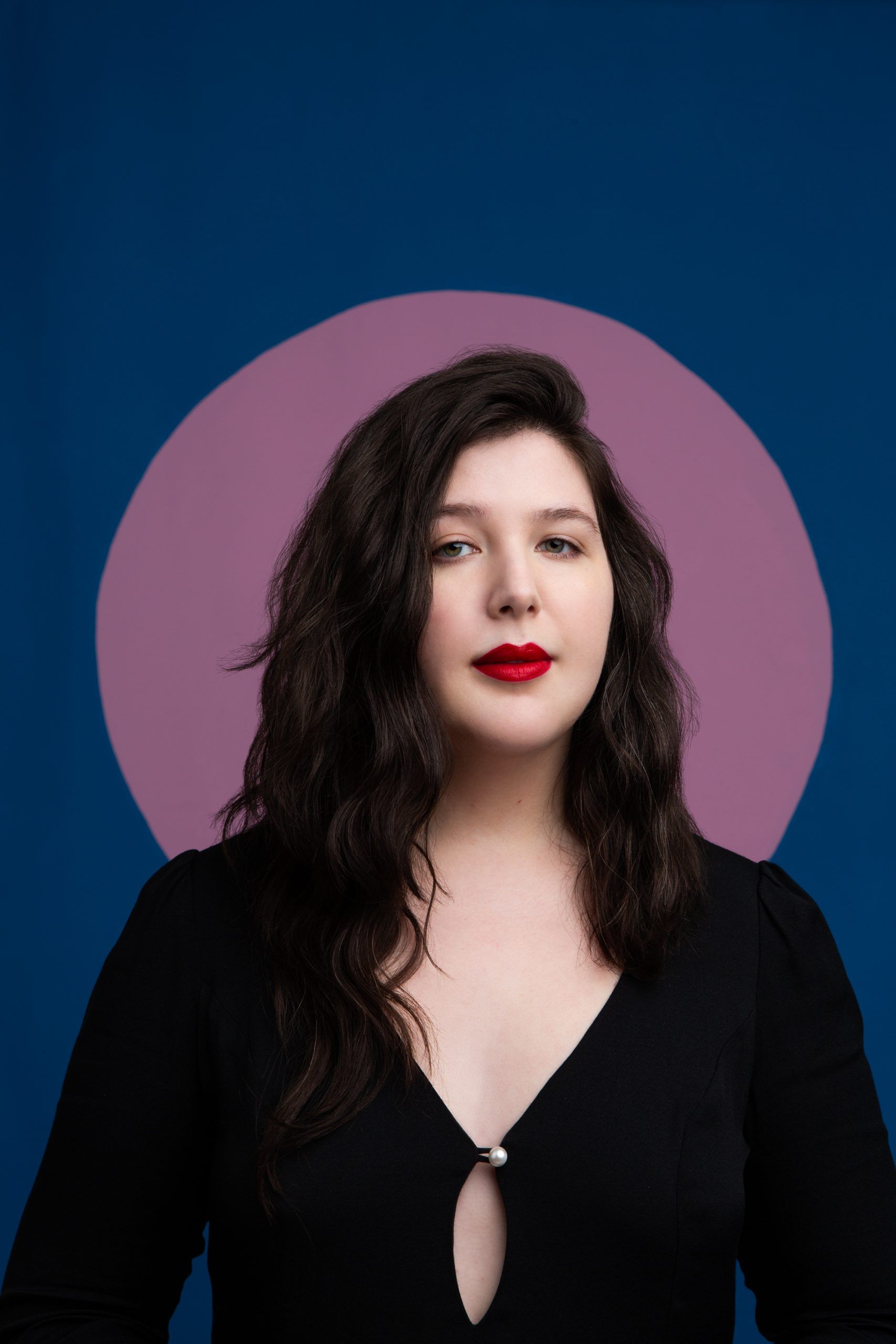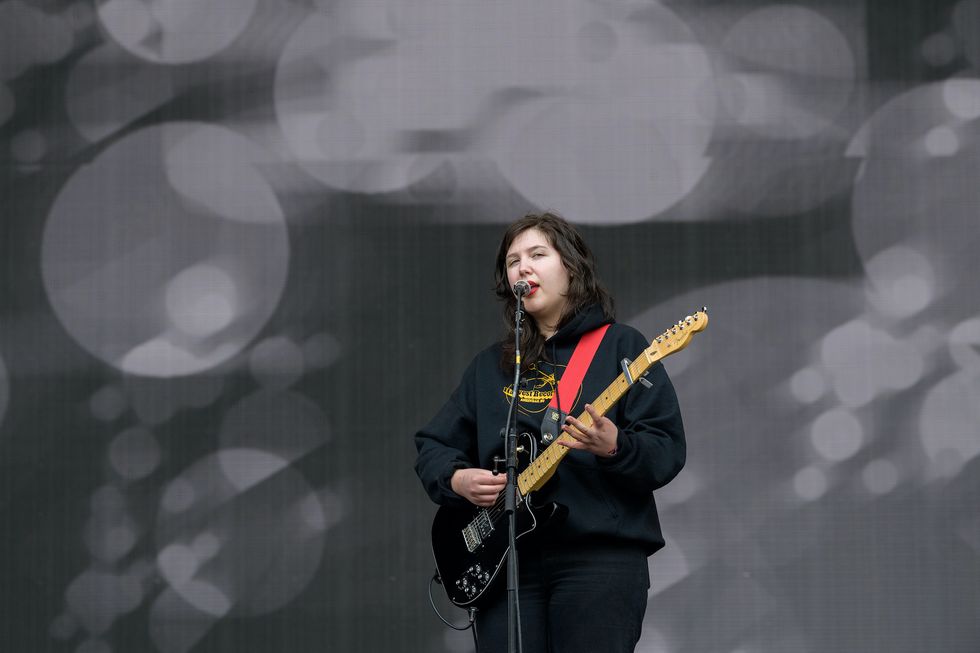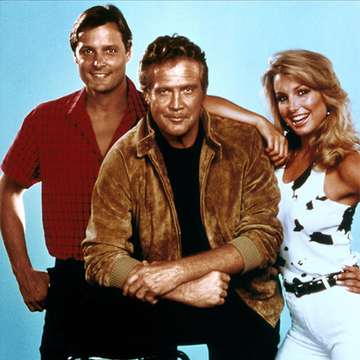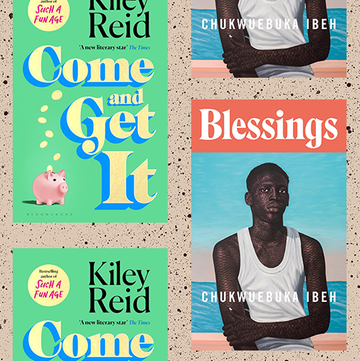In June of 2020, Lucy Dacus returned to her hometown of Richmond, Virginia for the first time since moving to Philadelphia. It had only been a few months, but she no longer recognised what she saw. In the wake of George Floyd’s murder, throngs of Richmond residents were protesting police violence in the streets and demanding that the city finally get rid of its Confederate monuments. The famous Robert E. Lee statue that anoints one end of Monument Avenue was covered in colourful protest art. A little further south, a group of protestors had torn down a statue of Christopher Columbus and thrown it in a nearby lake. When Dacus saw the empty pedestal where Columbus once stood, she burst into tears.
“I'm so glad they're coming down,” Dacus tells me in late May as we sit in the sunken backyard of a Brooklyn brownstone. “But I cried my entire trip because I wanted to be a part of that. I wanted to see it happen. And for knowing that even just [after] half a year away, I had changed so much and the city had changed so much.”
“That phrase, you can never go home again is true,” she says.
Dacus is in New York right now promoting her new album, Home Video, a nostalgic record that takes an unflinching look at her coming-of-age years in Richmond, and the overgrown yard we’re sitting in looks like it could be the setting of its own home video. There’s mismatched furniture and abandoned clay pots which are strewn across the pebbled portion of the yard where Dacus is sitting on one side of a chipped, dull grey table, her legs crossed laxly at her ankles.
“So where is home now?” I ask her. “I don't know, man!” she replies, bewildered and laughing a bit at the question. She has a tendency of laughing before launching into something complicated and uncertain. “Home might be a quest. Home might be in transit. It makes me feel sad because I want home too, but I don't know if anyone will ever get there.”
After 15 months of pixelated hangouts, where bad wifi often obscured the details of a person, Dacus cuts a lively presence. Her nails are painted bright blue and her crimson red lipstick pops against her pearly complexion. In conversation, she is smart and entertaining without being splashy. She wades into topics carefully, only after fully gauging the depth of a question. Once she has though, she is capable of talking in excited, unguarded riffs. Tonight, she is in a reflective mood and the warm weather and evening light encourage our breezy conversation. “I think I am kind of a reminiscent person,” Dacus tells me in between sips from her water bottle. “But there was definitely a change when I started doing music and touring a lot.”
In less than two years, Dacus released two critically acclaimed albums, 2016’s No Burden and 2018’s Historian. She also co-created a celebrated supergroup named boygenius with friends and fellow musicians Phoebe Bridgers and Julien Baker. The rapid ascent, Dacus says, threw her off, and her reminiscent tendencies only intensified as the quiet life she led before gave way to an unrecognisable new reality. She used to be an anonymous, joyful member of a thriving, local music scene, she tells me. Now strangers stop her on the sidewalk to wish her happy birthday. People she had never met acted like they knew her better than she knew herself. “You used to be so sweet,” she sings on Home Video’s rollicking lead single “Hot & Heavy.” “Now you're a firecracker on a crowded street.”
As she continues to explain the jolting effect fame had on her, I get the sense that this grateful but reluctant rock star would’ve been just as happy drifting through life as a librarian. At least then she might’ve been able to stay put in her hometown of Richmond, VA. But as a popular indie artist in a small city, her profile got in the way of her privacy. Once people started showing up on her doorstep, Dacus knew it was time to pack her bags. “I finally got to the point where I felt unsafe enough in the familiar world of Richmond, that moving was a better option,” she says.
Plus, the version of home she knew and loved had been replaced by a more competitive and hostile scene. Dacus uncrosses her legs and recalls a heartbreaking memory when her friend sat her down and explained how the nurturing environment she’d grown up in was gone. “He was like, ‘Honestly, I love you. But once you started to get known, I think everybody wanted a taste of that, and the vibe is different. That [scene] doesn't exist anymore.’”
Dacus winces and attempts to reassure herself. “It was such a beautiful generative time and maybe it would have changed anyways…” The thought lingers in the air and the usually focused artist seems distracted. Her gaze fixates on the deck that stretches across the back of the brownstone behind me. “Sometimes I feel guilt that anyone who loves me would tell me not to feel.” Dacus exhales. “But that doesn't mean that I'm not feeling it!” She looks at me as if to say “ya know?” And I do. The obviousness of her admission makes us both laugh.
The sum total of all these things: the shape-shifting experience of sudden fame, the abrupt abandonment of a comfortable situation, and the guilt that comes from leaving something beloved behind, forced an urgent question to the front of Dacus’s mind: “Who have I been this whole time that I can cling to?”
Home Video is an attempt to answer that question. Written during her warp-speed rise to fame, the album’s songs reflect Dacus’s coming-of-age years in Richmond. There was the queer pining for a friend which she documents tenderly on “Triple Dog Dare,” and the duplicitous relationship with an older man who should’ve known better: “When you asked my age, I lied/I saw relief dawn on your eyes” she sings on “Partner in Crime.”
“At the time it felt playful and not serious,” Dacus says. “But over time, I've thought it was a really dark situation.” To channel the darkness and the deceit of the relationship, Dacus experimented with Auto-Tune—itself a mask—for the first time. The effect adds a watery texture to her vocals and an inflection of uncertainty to Dacus’s typically confident and sonorous alto voice.
Very few of the songs on Home Video feature the sprawling guitar sounds listeners have come to associate with Dacus. She purposefully designed these tracks to be warmer and more contained, as intimate as an early childhood memory and sometimes as gentle too. “Each song, I wanted it to feel kind of like its own world,” explains Dacus of the album’s design. “I wanted it to feel cohesive, but I wanted every song to feel different.”
On “Going Going Gone,” the supple strumming of an acoustic guitar submerges the listener in a story about a park bench make-out session. An isolated, piano-driven melody achieves a similar immersive effect on “Please Stay” — a quiet ballad about a relationship that’s just about out of gas. Meanwhile, the John Fahey-style fingerpicking that opens “Cartwheel” is a bright, but delicate presence that fades out and delightfully reappears like a roaming lightning bug, blinking its way across a summer lawn.
Many of these production choices led Dacus into new territory, or at least, back to places she hadn’t visited in a while. The use of piano in particular was a meaningful, if not surreal, departure from her typical style due to its connection to family. “My mom's a pianist so I had veered away from using piano because it had such a heavy connotation for me,” Dacus says before beginning to drift off. “But since this was going back to childhood anyways…”
When I ask Dacus if she thinks she had a good childhood, she pauses to consider the question. “It’s hard to say,” she responds after a while. “My first level impulse is yeah.” But there are multiple levels and the loquacious musician is just getting started. “My next level impulse is like, ‘actually was I just disassociating for a lot of it?’” She felt safe for the most part, sure, but she was also taught a lot of problematic things, but she felt cared for so ... I watch as Dacus yo-yos between decisions, debating only herself for a solid two minutes before ultimately resigning to not knowing. “I can keep going in a spiral like that,” she lets out with an exasperated laugh. (There’s that laugh again…) “It's hard to say good or bad.”
For all of her indecisiveness, one thing Dacus knows is that, upon reflection, the sex talk she got from her mom was pretty weird. For starters, it took place in the food court of a local mall. After a girl in a push-up bra and tiny shorts walked by their table, Dacus asked her Mom why she was dressed that way. “The summation of what she explained is that women who don't have self-respect appeal to men in order to find meaning in themselves. And men are dogs, and just are attracted to women that they want to have babies with.” Dacus latched onto that explanation, and as a result, was judgmental about the way women dressed for a long time. “Starting in high school, I started to shed that. But like probably elementary and middle school, that's kind of how it was. A lot of slut-shaming and internalised shame.”
It’s not easy to revisit your childhood. Some people never do it. But Dacus is reflective by nature and the vulnerability she exhibits on Home Video, the memories she shares about bad poetry and kisses warped by braces, let the rest of us off the hook. Through her stories and her specificity, we too revisit our pasts.
Take one listen to the song “VBS,” for example, and you’ll feel compelled to recall the last time you flung your awkward, adolescent body into a bunk bed. For Dacus, it was at the Christian summer camp program, Vacation Bible School, a staple experience of her childhood. “Some VBSs were really hateful. Some were basically just camp,” she says. “I went to so many. I think fondly about some of them but some of them were really messed up.” She laughs and launches into a story about a particularly fanatic VBS preacher. “He had us all get our iPods out and delete all the songs on them that weren't Christian music,” Dacus recalls. “But I fought for ‘Chasing Cars’ by Snow Patrol.”
VBS is one of the many tracks on “Home Video” that profiles the pivotal time in life when the realities of adulthood threaten to hijack the joys and vulnerability of youth. The most powerful among them to do this though is the long-anticipated “Thumbs.” Dacus fans have demanded the formal release of “Thumbs” ever since she began playing it on tour in 2018. They even set up a Twitter account called “Has Lucy released Thumbs yet?” to keep track of its status.
On “Thumbs,” Dacus writes gracefully and without flinching about her friend’s no-good father and her own violent, protective instincts. “I would kill him/if you let me/I would kill him/quick and easy,” she sings over an echoey chamber of synthesisers. Through Dacus’s vulnerability, we experience the contradicting impulses—to harm and to heal—we all contain.
With the sun sinking beneath the city’s skyline, a chill now cuts through the warm spring air. Dacus and I huddle deeper into our respective jackets and talk about Home Video’s impending release. Sweeping a strand of her thick, peppercorn black hair behind her ear, Dacus confesses that she’s nervous for her album to come out. “I'm worried about people following up with me from my personal life.”
She had given a few of her close friends who were the subject of songs a heads up, but she wonders if she’ll hear from the people in “Partner in Crime,” “Triple Dog Dare,” and a handful of other tracks. Dacus squeezes her shoulders up to her ears, as if bracing herself for an onslaught of iMessages from people from her past. “It’s gonna happen” she insists. And that’s why she considers Home Video her riskiest album. “It's like inviting something that will make my life more difficult,” Dacus says. By putting these songs out into the world, she’s letting the past back in through the front door. She is, in effect, going home again.
Abigail Covington is a journalist and cultural critic based in Brooklyn, New York but originally from North Carolina, whose work has appeared in Slate, The Nation, Oxford American, and Pitchfork














